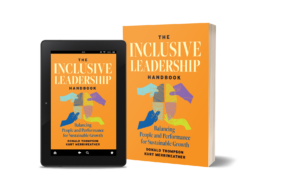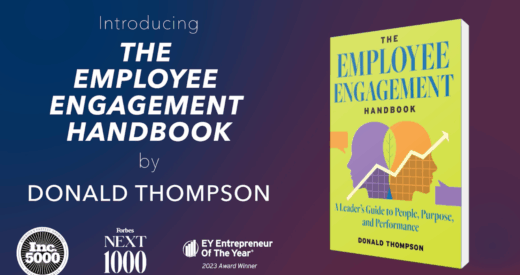The legal industry can be prestigious and profitable, yet it is also known to be grueling and homogenous. There’s a culture of “earning your dues” and working strenuous hours. The road to partnership is long – often 10 or more years – and uncertain, as most firms lack clear career development paths. Given these challenges, it’s no wonder young professionals are fleeing their firms or the profession altogether.
Since 2021, associate turnover has been above 20% each year, with disproportionate numbers of associates of color departing. The American Bar Association notes that, of associates that leave their firm, 72% do so in the first 5 years. Of the main reasons cited, changes to a different type of job and unfavorable work quality standards were some of the most common.
The legal field needs a solution to its retention problem; inclusive leadership can help.

At their core, inclusive leaders build cohesive and productive teams through proven practices and behaviors. Inclusive leaders see a 17% increase in team performance, a 20% increase in decision-making quality, and a 29% increase in team collaboration. Inclusive leaders can also lower employee attrition risk by 76%. Given these statistics and the legal industry’s above-average turnover rate, inclusive leadership stands to be a powerful tool in any firm’s toolbelt.
But internal teams aren’t the only ones that benefit; inclusive strategies also improve customer service and client satisfaction. Inclusive leaders solicit ideas and input from a diverse cross-section of employees, meaning the best ideas win. Gathering more diverse perspectives better serves diverse clientele. In fact, a team with one member who shares a client’s ethnicity is 152% more likely than another team to understand the client’s point of view. Given that a firm’s employee base is almost always less diverse than its customer base, soliciting a variety of perspectives is critical.
Below are five ways firm leaders can foster highly effective, productive teams.
1) Be a thoughtful communicator
In the fast-paced, client-facing world of law, it’s easier to communicate quickly rather than clearly. Emails get sent with fast fingers between depositions, and hurried calls are made to confirm deadlines and progress. Considering how your messages are coming across is often an afterthought.
However, strong communication might just be the most important prerequisite for high-performing teams. If you want to reap the benefits of inclusive leadership, you must be able to express yourself clearly and succinctly.
“There are numerous benefits to effective communication including better teamwork and enhanced collaboration” explains Sharon Delaney McCloud, Emmy-award winning journalist and Director of Corporate Communications at UNC Health. “Communication also helps prevent misunderstandings and resolve conflicts. When people communicate well, they are able to gain a holistic view of the problem, enabling long-term solutions, not just quick fixes.”
Leaders can communicate better by slowing down and following the “5 Cs” of effective communication: clear, concise, complete, correct, and compassionate. Make sure you’re answering “who,” “what,” “when,” “where,” “why,” and “how,” while being mindful of your tone.
2) Foster collaboration
Different ways of thinking and approaching problems are what make diverse teams so effective. Without collaboration, the same voices are heard again and again, and innovation lags. As a leader, be sure to foster psychological safety, so everyone feels comfortable bringing their ideas to the table, even if they conflict with opinions from the group majority. To create a psychologically safe workplace, employees should know that mistakes are growth opportunities and that the team will tackle challenges together. Be sure to intentionally solicit input from a variety of people. For instance, ask your first-year associate, who’s been deep in document review, what they think is the key to the case. Or, bring your paralegals in to brainstorm how to minimize research inefficiencies. You never know whose idea will spark innovation.

3) Adopt a growth mindset
Having a growth mindset means cultivating an open-minded curiosity and viewing challenges as learning opportunities. For leaders, it means engaging in continuous self-improvement and also developing the talents of their staff. For an inclusive legal leader, intentional mentorship demonstrates a growth mindset in action.
Many young lawyers enter the workforce with little real-world experience. Law school covers all the foundations and theories, but it often fails to teach people how to be a lawyer. Developing a mentorship program for associates means cultivating better and brighter talent.
It also leads to greater retention. “[Mentorship] helps us recruit,” says Kerry Shad, partner at Smith Anderson, the largest law firm in Raleigh, N.C. “It absolutely helps us retain talent. There are talent wars going on, and you’ve got to find a way to distinguish your environment and show people that, ‘Stick with us, and you’ll become a great lawyer.’”
4) Be a reliable leader
The legal industry is volatile enough without reporting to an inconsistent leader. Last-minute settlements, rescheduled hearings, and impending deadlines make the field unpredictable and disorienting. The last thing new lawyers need is to report to an unreliable leader.
“Few people enjoy unpredictability or walking into work, wondering, ‘What kind of mood is the boss in today?’” explains Greg Ng, CEO at consulting firm Brooks Bell, Inc. “In business, as in life, uncertainty breeds confusion.”
Given the constant uncertainty associates already face, it’s important that their managing partners are a reliable source of facts and support. To be a reliable leader, be open and transparent about priorities, tasks, and status updates. Share challenges, as well as opportunities, and demonstrate a willingness to acknowledge missteps personally and within your team.
5) Aim for self-awareness
Law firms are traditionally hierarchical systems. As a leader, that means what you say and what you do carries tremendous weight. A self-aware leader is aware of the impact of their words and actions on others, which makes them a better leader. Being self-aware means slowing down to ask yourself, “How will what I say next come across to the team?” or “If I assign John but not Susie to the case, how will that be interpreted?” It means looking inward to find any biases or misconceptions that influence outcomes.
It also looks like leaning on trusted advisors and colleagues to point out any leadership flaws or ineffective approaches. It means taking a true look at the good, the bad, and the ugly, and becoming a better leader for it.
The legal field’s retention issues, characterized by high associate turnover and the loss of diverse talent, stem from its demanding nature and lack of clear career progression. Inclusive leadership emerges as a crucial remedy to this problem. By fostering inclusive practices, law firms can enhance team performance, improve decision-making, and significantly reduce attrition.
To realize these benefits, leaders should prioritize communication, collaboration, growth, reliability, and self-awareness. These strategies help create a supportive and innovative environment that ultimately drives the firm’s success. Embracing inclusive leadership is essential for cultivating a more equitable and effective profession.
 For more on inclusive leadership and how it drives employee engagement in any industry, read The Diversity Movement’s new book, The Inclusive Leadership Handbook: Balancing People and Performance for Sustainable Growth, by Kurt Merriweather, VP of Marketing, and Donald Thompson, CEO. TDM has also created LeaderView, a leadership assessment tool that uses cultural competency as a driver for improving whole team performance.
For more on inclusive leadership and how it drives employee engagement in any industry, read The Diversity Movement’s new book, The Inclusive Leadership Handbook: Balancing People and Performance for Sustainable Growth, by Kurt Merriweather, VP of Marketing, and Donald Thompson, CEO. TDM has also created LeaderView, a leadership assessment tool that uses cultural competency as a driver for improving whole team performance.
Kaela Sosa is co-founder and Manager, Curriculum and Programming at The Diversity Movement. Her expertise includes psychology, gender identity and sexual orientation and racial identities. Kaela has written and spoken about a range of topics: active allyship, the inclusive talent lifecycle, disability etiquette, LGBTQ+ inclusion and inclusive language. At The Diversity Movement, she leads the development and execution of learning programs, including digital learning, online courses, certificate programs and certification opportunities. Connect with or follow Kaela on Linkedin to learn more.




